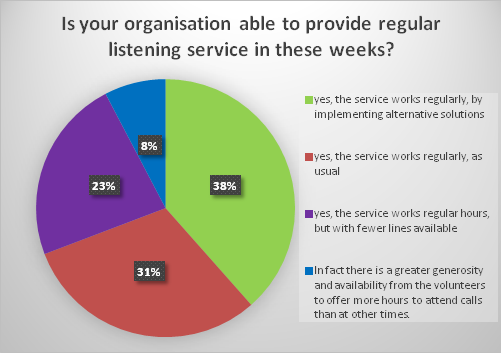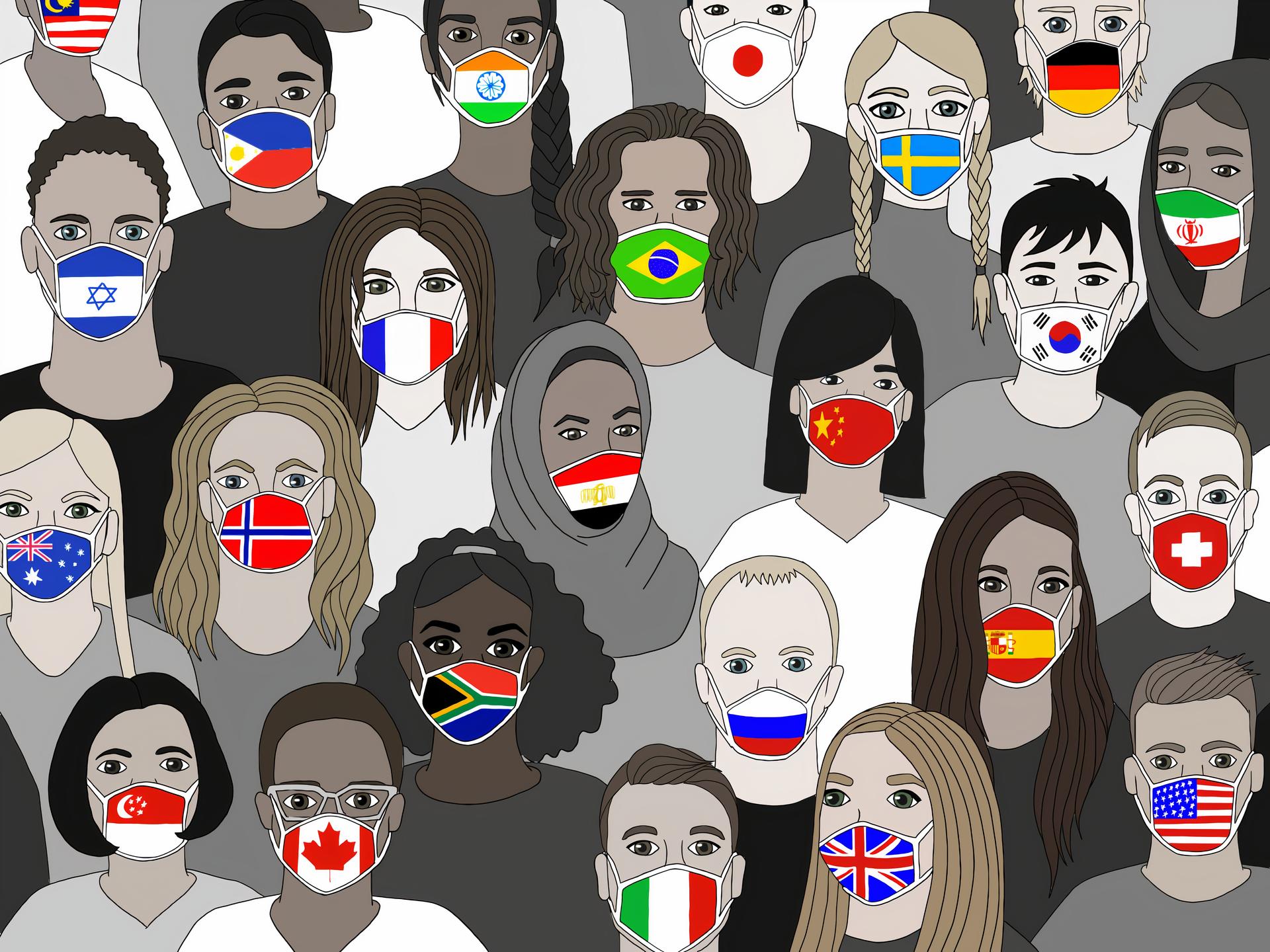This Privacy Policy is intended to describe the management methods and warnings of this site, for the protection of personal data of users / visitors who consult it.
This is an information that is also provided pursuant to art. 13 of Legislative Decree 196/03 - Code regarding the protection of personal data and pursuant to art. 13 GDPR 679/2016 - European regulation on privacy, as well as in accordance with the Provision concerning cookies n. 229 of 8 May 2014, to those who connect to the corporate website of IFOTES at the address www.ifotes.org
The information is also based on the Recommendation n. 2/2001 that the European authorities for the protection of personal data, gathered in the Group established by art. 29 of the directive n. 95/46 / EC, adopted on 17 May 2001 to identify certain minimum requirements for the collection of personal data online, and, in particular, the methods, timing and nature of the information that the data controllers must provide to the users when they connect to web pages, regardless of the purpose of the link.
The site www.ifotes.org is owned and managed by IFOTES, which guarantees compliance with the regulations on the protection of personal data (Legislative Decree 196/03 and GDPR 679/2016).
Users / visitors must read this Privacy Policy carefully before submitting any personal information and / or completing any electronic form on the site.
Owner of data processing and data processing managers
Following consultation of this site, data relating to identified or identifiable persons may be processed.
The holder of the data processing
The data controller is IFOTES at ARTESS, in the person of the legal representative pro tempore, with registered office in Udine, via Argentina 16.
The person in charge of data processing
Please contact us at the following address info@ifotes.org: enter your email address if you wish to request to be able to view the list of data controllers and other subjects to whom we communicate the data.
Place of data processing
The processing of data related to the web services of this site takes place at ARTESS office, via Argentina, 16, Udine, Italy.
Types of data processed, data processing and communication purposes
Navigation data
The computer systems and software procedures used to operate this website acquire, during their normal operation, some personal data whose transmission is implicit in the use of Internet communication protocols.
This is information that is not collected to be associated with identified interested parties, but which by their very nature could, through processing and association with data held by third parties, allow users / visitors to be identified.
This category of data includes IP addresses or domain names of the computers used by users connecting to the site, the addresses in the Uniform Resource Identifier (URI) notation of the requested resources, the time of the request, the method used to submit the request to the server, the size of the file obtained in response, the numerical code indicating the status of the response given by the server (success, error, etc.) and other parameters relating to the operating system and the user's computer environment.
These data are used for the sole purpose of obtaining anonymous statistical information on the use of the site and to check its correct functioning and are deleted immediately after processing. The data on web contacts are not stored, however, for more than seven days, except for any investigation of computer crimes against the site and are in no way communicated or disseminated outside if not required by law.
Data provided voluntarily by the user
If users / visitors, connecting to this site, send their personal data to access certain services, or to make requests in e-mail, this involves the acquisition by IFOTES of the address of the sender and / or other any personal data that will be processed exclusively to respond to the request, or for the provision of the service.
The personal data provided by users / visitors are in no way communicated or disseminated externally except by legal obligation.
On the site, for special purposes of optional processing or for certain types of data, there are special summary information and express requests for explicit and voluntary consent.
In detail, the data necessary for the appropriate communication / information are marked with an asterisk (*) while the others are optional and collected for purposes expressly stated on the specific page.
Optional provision of data
Apart from that specified for navigation data, the user is free to provide personal data contained in the request forms. However, failure to provide such data may make it impossible to obtain what has been requested.
Methods of processing and site security measures
The data processing is carried out through automated systems (eg using IT procedures or electronic media) and / or manually (eg on paper) for the time strictly necessary to achieve the purposes for which they were collected and, in any case, in compliance with the current regulations in force.
Specific security measures are observed to prevent data loss, illicit or incorrect use and unauthorized access.
Recipients of the data
No data deriving from the web service is communicated or disseminated (save communication to judicial or police bodies if necessary).
The data are processed by personnel specifically appointed in writing to the processing of data (administrative staff and persons in charge of relations with the public, persons in charge of the management of information systems who may also perform functions as system administrator and are in this case appointed as such, personnel of the sector marketing, interns, data processors and their collaborators, in charge of the specific sector to which a request is addressed, assigned to the management of the site) only if the processing is necessary for the performance of their duties by performing only the operations necessary for the performance of the tasks.
At the data processing company, the list of persons authorized to process the data is indicated in the appropriate document available at the company's headquarters.
Data retention
The data acquired are kept for the time necessary to perform the service requested by the user or required by the purposes described in this document.
The user can always, at any time, request the interruption of treatment or the deletion and / or limitation of data.
Data transfer
IFOTES does not transfer personal data to third countries or to other international organizations.
Withdrawal of consent
With reference to the art.23 of the D.Lgs. 196/2003 and to the art. 6 of the GDPR 679/16, the interested party can withdraw the consent at any time.
Requests should be addressed to IFOTES, c/o Associazione ARTESS, via Argentina, 16, Udine – Italy, by registered letter, fax, e-mail.
Rights of the interested parties
The subjects to whom the personal data refer have at any time the right to exercise:
The right of access (Article 15 GDPR 679/2016)
The right to cancel (Article 17 GDPR 679/2016)
The right to limit processing (Article 18 GDPR 679/2016)
The right to data portability (Article 20 GDPR 679/2016)
Requests should be addressed to the customer name, customer address, by registered letter, fax, e-mail.
Proposition of the complaint
The interested party has the right to lodge a complaint with the supervisory authority of the state of residence.
Automated decision-making processes
The Data Controller does not process treatments consisting of automated decision-making processes, except for what is explicitly stated in the Cookie Policy
The privacy of minors
Our website is aimed at a general public and does not offer services for children.
If we discover that a minor has provided us with personal data without the permission of the parents or guardian, we will immediately delete this information.
Defense in court
The User's personal data may be used for the defense by the Owner in court or in the stages leading to its eventual establishment, by abuses in the use of the same or related services by the User.
The User declares to be aware that the Data Controller may be required to disclose the Data at the request of the public authorities.
Links
This website allows the link to other third-party websites.
It is understood that IFOTES does not have any control over these sites and assumes no responsibility for these external sites, nor is it responsible for the content or accessibility of these sites.
The information is provided only for this site and not for third-party websites linked to this site.
Changes to this privacy policy
The Data Controller reserves the right to make changes to this privacy policy at any time giving notice to users on this page. Please therefore consult this page often, referring to the date of the last modification indicated at the bottom. In case of non-acceptance of the changes made to this privacy policy, the user is required to quit using this website and may request the Data Controller to remove his personal data, except as otherwise specified.
Information on this privacy policy
The Data Controller is responsible for this privacy policy.
Udine, June 20th 2018

